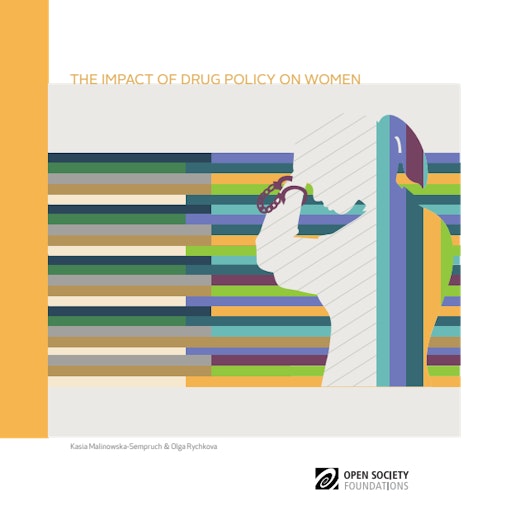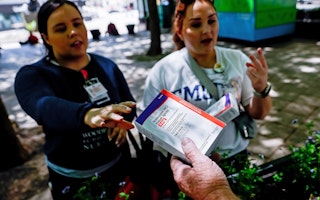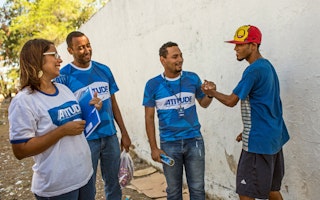Getting Drug Policy Right for Women and Girls
By Kasia Malinowska & Olga Rychkova
When most people picture the illicit drug trade—the traffickers, the gangs, the kingpins—they picture a world comprised of men. But drugs and drug-related crime affect women uniquely. Understanding how women fit into this dynamic is crucial to getting drug policy right. That’s the message of a new report from the Open Society Global Drug Policy Program, The Impact of Drug Policy on Women.
While in absolute numbers more men than women are convicted of and incarcerated for drug offenses globally, the proportion of people in prison for drug convictions compared to other crimes is higher among women than men. In the United States, where racially biased arrest and detention of African American men has rightly been the target of reform, few people realize that during the peak years of locking people up for minor drug offenses—from about 1980 to 2010—incarceration of women increased eightfold compared to about a threefold increase among men.
Women often play minor roles in drug markets, driving the car or carrying small amounts of drugs. They are often not highly enough placed to have information on major traffickers that would give them leverage in plea bargaining with prosecutors. In places like the United States and Canada, where there are mandatory minimum sentences for minor crimes or for conspiring to commit drug crimes, women may end up serving lengthy prison sentences even for small infractions.
Prisons and pretrial detention facilities for women are even less likely than those housing men to have drug-related health services. Women’s prisons, because they are relatively few in most countries, can strand caregivers far from their families, leaving their children in precarious positions.
Many criminal networks that dominate drug markets use violence against women to terrorize and assert their control over communities. Drug lords in some parts of Latin America have been known to draw girls and young women into their circles with extravagant gifts and promises of wealth, only to inflict violence and abuse on them and involve them in criminal acts. These tactics may be particularly effective in places where poverty is rampant and women and girls face discriminatory barriers to mainstream employment.
Women are more likely than men to be drawn into drug use, especially drug injection, by a sexual partner. This can sometimes mean that women may have a harder time insisting on clean injection equipment or seeking drug-related health care. In many countries, women who live with drug dependence do not have access to gender-appropriate treatment services, including services that accommodate the demands placed on women as caregivers of children.
Harm reduction services similarly are not always tailored to the reality of women’s lives. Drug-related services are rarely integrated with other services women need, such as reproductive health services, in ways that would facilitate access.
Women who use drugs often face enormous social stigma. They are reviled as morally “fallen” and unfit parents. Pregnant women who use drugs should be at the head of the queue for social services and treatment. Instead, in many societies, they are excluded from good-quality services and simply blamed—often without medical justification—for compromising the health of their newborns. Drug use by parents in some places is adequate grounds for removing children from the custody of parents, while providing gender-appropriate care and social support could preserve families to everyone’s benefit.
The UN General Assembly Special Session (UNGASS) on the “world drug problem” scheduled for April 2016 is an opportunity to draw attention to the urgent need for gender-sensitive drug policy and programs, and to secure commitments from UN members states to do better. In particular, the UNGASS deliberations and declaration should highlight the urgent need for the following:
- alternatives to arrest and incarceration for women and girls accused of minor offenses and reform of mandatory minimum sentencing policies that particularly affect women
- gender-appropriate treatment and harm reduction services for women and girls who use drugs, preferably integrated with reproductive health care and other services women seek
- supportive services for women who use drugs and are the principal caregivers of children, particularly to enable their families to stay intact
- addressing gender-based violence against women who use drugs, including by providing appropriate care and holding abusers accountable
- removal of barriers to mainstream livelihood activities for women and girls

Kasia Malinowska is director of Drugs Policy at the Open Society Foundations.
Until January 2018, Olga Rychkova was a program officer for the International Harm Reduction Development Program.


